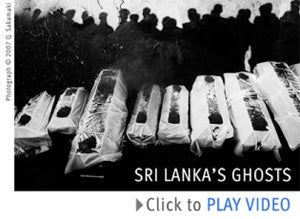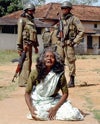U.N. Members should not elect Sri Lanka to the Human Rights Council
On May 21, the United Nations General Assembly will hold elections for 15 of the 47 seats on the new Human Rights Council. Human Rights activists from around the world urge U.N. member states to reject the candidacy of Sri Lanka because of its clear failure to meet the council’s membership standards.
Human rights defenders in Sri Lanka, one of the states seeking election to the Council this year, have urged U.N. members to “hold the Sri Lankan government accountable for the grave state of human rights abuse in the country” by rejecting its candidacy. The Sri Lankan defenders observe that their government fails to meet the Council’s membership standards, has “presided over a grave deterioration of human rights protection” since first winning membership in 2006, and “has used its membership of the Human Rights Council to protect itself from scrutiny.”














